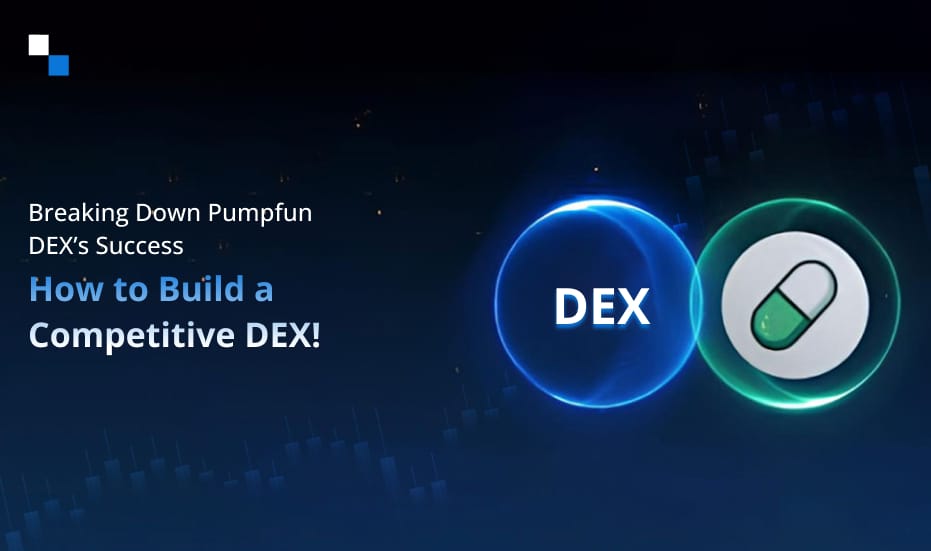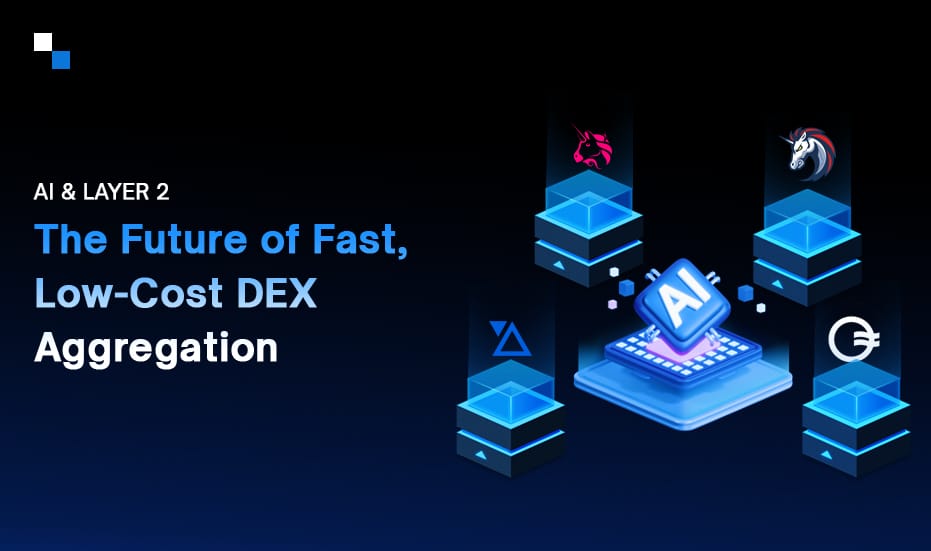
Multi-Chain Tokenization: Building the Future of Digital Asset Platforms
April 15, 2025
What is the Cost of Developing Blockchain-Based Carbon Trading Software?
April 15, 2025Cronos is the Blockchain You Can’t Afford to Miss for DeFi Exchange Innovation
What’s the real cost of building a DeFi exchange on legacy blockchains—sluggish performance, skyrocketing fees, or limited scalability? In a market demanding speed, interoperability, and high-throughput architecture, businesses can no longer afford to settle for outdated infrastructures. This is where Cronos reshapes the narrative. Engineered for innovation, Cronos merges the power of Ethereum Virtual Machine (EVM) compatibility with the versatility of the Cosmos SDK, enabling seamless migration, dynamic scalability, and superior transaction finality. For any enterprise or startup engaging a DeFi Exchange Development Company, Cronos offers an unmatched foundation to launch powerful, future-ready Decentralized Exchange Software. As the next-gen hub for Decentralized Crypto Exchange Software, Cronos isn’t just a better option—it’s the strategic advantage for forward-looking projects in 2025. The shift has begun. The question is—are you building on the right chain?
Cronos Blockchain Unleashed: The EVM-Compatible Powerhouse
The blockchain ecosystem is witnessing a paradigm shift—while Ethereum and Solana paved the early path, Cronos is now redefining what’s possible in the decentralized exchange landscape. As businesses aggressively pivot towards scalable, interoperable, and cost-efficient solutions, Cronos emerges as the blockchain of choice for building next-generation Decentralized Crypto Exchange Software.
Here’s why Cronos is rapidly accelerating past its competitors:
- Seamless EVM Compatibility: Cronos is fully compatible with Ethereum smart contracts, empowering developers to migrate DeFi protocols without rewriting core logic—minimizing time-to-market while maximizing operational efficiency.
- Cross-Chain Superpower: Built on the Cosmos SDK, Cronos ensures seamless interoperability, connecting liquidity and data flows across ecosystems to elevate user experience and trading flexibility.
- Unmatched Throughput & Scalability: Cronos delivers lightning-fast transaction speeds and low latency, resolving the congestion and cost bottlenecks that plague legacy networks like Ethereum.
- Enterprise-Grade Backing: With the strategic support of Crypto.com, Cronos benefits from a massive user base, institutional credibility, and global promotional reach—critical pillars for scaling any Decentralized Exchange Development project.
- Green by Design: Cronos uses a Proof-of-Authority (PoA) consensus model, drastically reducing energy consumption while maintaining robust security, making it ideal for sustainable, long-term innovation.
Whether you are a startup or an enterprise aiming to deploy decentralized exchange software, Cronos offers a futuristic, resilient, and performance-optimized ecosystem to launch, scale, and dominate in the DeFi arena. Thus, most of the power of Cronos lies in its EVM compatibility. Let us see how this proves to be the game changer for the businesses willing to launch a DEX platform.
The Power of Cronos EVM: A Game-Changer for DeFi Exchange Development
For businesses entering the DeFi space, the ability to deploy, scale, and innovate rapidly is non-negotiable. That’s where Cronos EVM becomes indispensable. As an Ethereum Virtual Machine-compatible chain, Cronos bridges the gap between familiarity and future readiness. Developers can use the same robust tools, libraries, and standards they already trust in the Ethereum ecosystem while tapping into Cronos’s unique performance advantages.
What sets Cronos EVM apart is its seamless smart contract interoperability—teams can port over Ethereum dApps without any codebase friction. This means faster deployments, reduced dev cycles, and lower risk. Moreover, the network’s PoA consensus and Cosmos SDK integration bring lightning-fast finality, interoperability, and reduced fees—creating an environment where DeFi protocols can flourish at scale. If you are building a decentralized crypto exchange software platform, overlooking Cronos’s EVM capability means forfeiting cost-efficiency, developer convenience, and market agility. It’s not just a smart move—it’s a strategic imperative.
Standout Features of Cronos-Powered Decentralized Exchanges
Feature-rich DEX platforms on Cronos bring cutting-edge utility to life. Each of these capabilities redefines the scope of what Decentralized Crypto Exchange Software can achieve:
- Automated Market Maker (AMM): Enables algorithmic asset pricing and liquidity pool creation for seamless, trustless trading.
- Multi-Asset Swaps: Instantly swap multiple token types with deep liquidity support from multi-chain pools.
- Wallet Integrations: Native support for DeFi Wallets, and WalletConnect ensures seamless user onboarding.
- Staking & Yield Farming: Reward mechanisms and liquidity incentives are integrated at the protocol level for user retention.
- Real-Time Analytics: Integrated dashboards display market metrics, liquidity flow, gas usage, and transaction insights.
- Oracle Integrations: Secure external data feeds from Chainlink or Band Protocol for pricing, governance, and derivatives.
- Decentralized Governance: DAO-ready architecture supports community-driven upgrades, proposals, and voting rights.
- Cross-Chain Liquidity Aggregation: Unified liquidity management across Ethereum, Cosmos, and Binance Smart Chain.
Upgrading to Cronos for your DEX means building with future-proof tech underpinned by efficiency, extensibility, and absolute control.
Key Benefits of Cronos for DeFi Exchange Development
Choosing Cronos isn’t just a decision—it’s a game-changing strategy for building elite-level Decentralized Exchange Software. Here’s why:
- Blazing Fast Transaction Speed: Cronos can process thousands of transactions per second, ensuring lightning-fast trades that elevate the user experience and support high-frequency trading environments effortlessly.
- Ultra-Low Fees: Say goodbye to bloated gas costs—Cronos drastically slashes transaction fees, empowering traders and liquidity providers with cost-efficient interactions.
- Effortless Ethereum Portability: With native EVM support, developers can clone, port, or extend Ethereum-based DeFi platforms onto Cronos with minimal friction and maximum impact.
- DeFi-Optimized Interoperability: The Cosmos SDK allows your exchange to connect and trade seamlessly across multiple blockchains, opening floodgates for cross-chain liquidity.
- Institutional-Grade Security: Cronos’s architecture is built for fortified smart contract execution, protected validator consensus, and multilayered transaction safety—ideal for large-scale deployments.
- Massive Ecosystem Growth: Backed by Crypto.com and connected to a rapidly growing dApp community, Cronos ensures long-term value scalability and network effect-driven adoption.
- User-Centric Scalability: Its infrastructure is designed for volume—supporting millions of users without performance drops or network bottlenecks.
- Developer-First Environment: SDKs, toolkits, APIs, and documentation are designed to accelerate builds, test rapidly, and launch securely—all within a thriving open-source community.
When selecting a blockchain that aligns with your Decentralized Exchange Development ambitions, Cronos offers unmatched technical, economic, and strategic advantages that can’t be ignored.
Top Cronos Decentralized Exchange Platforms By 24-Hour Trading Volume

- VVS Finance- VVS Finance leads the Cronos DEX ecosystem with a significant market share, offering a wide range of trading pairs and attracting substantial user traffic.
- MMFinance (Cronos)- MMFinance offers competitive trading options with a focus on user experience and liquidity.
- Ferro Protocol- Ferro Protocol focuses on stablecoin swaps and offers efficient trading solutions within the Cronos ecosystem.
- Cronaswap- Cronaswap provides a user-friendly interface and supports a variety of trading pairs, catering to diverse trading needs.
- Ebisu’s Bay- Ebisu’s Bay offers a niche trading environment with a focus on specific token pairs and community engagement.
These defi exchange platforms exemplify the dynamic nature of the Cronos DeFi ecosystem. For businesses and developers aiming to build or integrate decentralized exchange solutions, aligning with these leading DEXs can provide strategic advantages in liquidity, user base, and technological infrastructure.
How To Develop a DEX on Cronos Blockchain?
Step 1: Project Scoping & Requirement Analysis
Define the exchange’s purpose, features, target audience, and functional specifications. Evaluate technical needs such as token standards, liquidity needs, and governance structure.
Step 2: Choose the Right Defi Exchange Development Company
Partner with a reputed DeFi Exchange Development Company experienced in building Cronos-based protocols. Validate their portfolio, security practices, and scalability solutions.
Step 3: Smart Contract Architecture
Design and develop Solidity-based smart contracts to automate trading, liquidity, and staking mechanisms. Audit and test contracts for vulnerabilities.
Step 4: Front-End and Back-End Development
Develop an intuitive UI/UX with React, Vue.js, or similar frameworks. Set up robust backend architecture using Node.js or Golang for blockchain integrations.
Step 5: Blockchain & Wallet Integration
Integrate Cronos blockchain nodes with your DApp. Ensure seamless wallet support using Web3 providers such as MetaMask and WalletConnect.
Step 6: Liquidity Management System
Implement AMM protocols, liquidity farming, and pool balancing modules. Ensure real-time price oracles are in place for asset valuations.
Step 7: Security Reinforcement
Implement multi-layer security mechanisms, conduct penetration testing, and integrate multi-sig authentication. Ensure rigorous auditing of smart contracts.
Step 8: Launch & Post-Deployment Support
Deploy the platform on Cronos mainnet. Offer continuous monitoring, performance analytics, and upgrades based on user feedback and DeFi trends.

How Much Does Cronos-Based DEX Development Cost?
“Quality software is never an expense—it’s an investment in scalability.”
When it comes to Cronos-based DEX development, the cost isn’t just about code—it’s about crafting a future-proof, performance-driven trading ecosystem. As demand surges for scalable decentralized exchange Software, understanding the investment breakdown helps businesses build smarter and launch faster. The cost of building a Decentralized Exchange Software on Cronos is influenced by a variety of technical and strategic factors:
- Development Scope: The number of features, integrations, and token functionalities required.
- Smart Contract Complexity: Custom logic, oracle integration, and DeFi primitives increase technical depth.
- Security Protocols: The intensity of audit requirements and testing frameworks.
- Node Infrastructure: Whether you self-host Cronos nodes or use third-party RPC providers.
- Third-Party Integrations: Inclusion of cross-chain bridges, oracles, and wallet SDKs.
- Governance Modules: On-chain voting and DAO setup requirements.
- UI/UX Expectations: High-end front-end with DeFi dashboards, charts, and real-time trade metrics.
- Post-Launch Support: Ongoing maintenance, upgrades, and community management needs.
Each component directly contributes to the overall resource allocation and technical investment required for your Decentralized Exchange Development on Cronos.
Launch Your Regulatory Complaint—DEX With Antier!
As blockchain networks evolve to meet the demands of speed, interoperability, and developer agility, Cronos stands out as the strategic nexus for future-focused DeFi ventures. To capitalize on this momentum, enterprises must align with a partner that understands both the technological intricacies and the market pulse. Antier, a globally acclaimed DeFi Exchange Development Company, delivers precisely that—deep blockchain expertise fused with agile execution. We engineer scalable, EVM-compatible, and security-hardened Decentralized Exchange Software tailored to thrive on the Cronos chain. From protocol architecture to cross-chain integration, every element is built for performance and longevity. With Antier, your DEX isn’t just another platform—it’s a market leader in the making. Forge your decentralized future with precision, power, and purpose—powered by Cronos and delivered by Antier.



